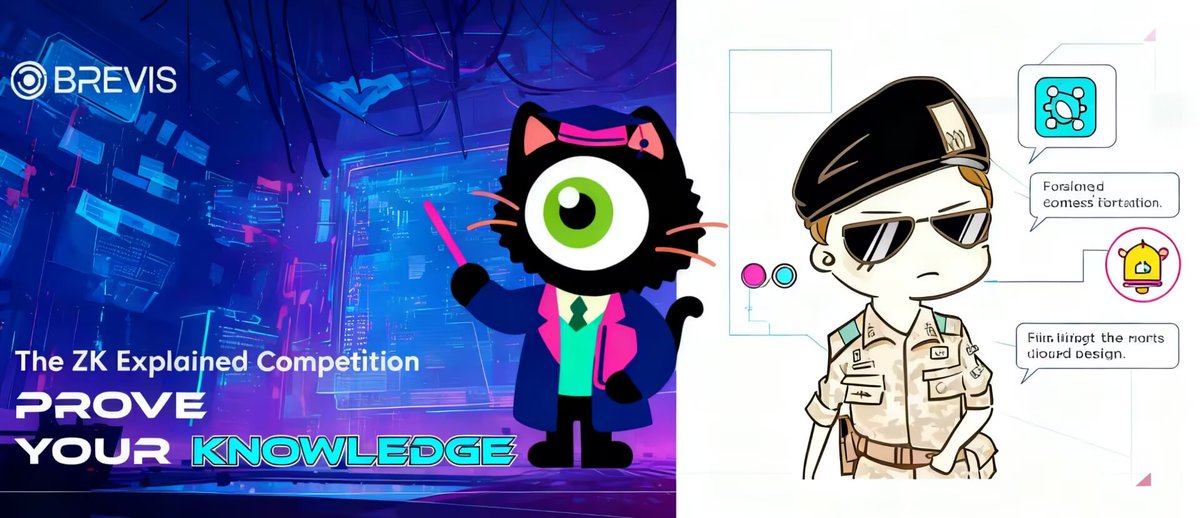At first, I really didn't understand what ZK meant. It sounds like high-sounding technical jargon, right? But its core concept is actually quite straightforward: I can prove I know something, but I don't need to tell you what it is.
It's like having the combination to a treasure chest. You want to convince your friend that you know the password, but you don't want to share it. So you stand in front of the door, enter the code, and it opens—and it does. You've proven you know the password, but you haven't revealed the password itself. This is the essence of zero-knowledge proof (ZK).
Work like @brevis_zk is bringing ZK technology to the data layer, allowing dApps to verify user behavior or reward distribution without relying on a centralized backend. Instead, they can use cryptographic proofs to ensure transparency.
@brevis_zk has launched a very interesting new event: the ZK Explained Competition. Simply put, it's a challenge to "explain technology through creativity." Whether you're good at making videos, long posts, drawings, or even memes, as long as you can make people understand the magic of Brevis and ZK, you'll win.
Topics include:
What is Brevis and what problems does it solve?
How does ZK Data Coprocessing work?
What's the difference between Pico zkVM and ZK Data Coprocessor?
Real use cases like PancakeSwap hooks, Linea Ignition, and Usual CPI.
💰 Rewards:
🥇500 Sparks
🥈300 Sparks
🥉200 Sparks
There are also 10 honorable mentions, each worth 100 Sparks.
🗓️ Event Period:
Opens October 21st, closes October 28th, and results announced November 1st.
Participating is super easy:
1️⃣ Join the Brevis X community 👉
2️⃣ Post your work in the community and tag it with #BrevisExplained
3️⃣ Tag @brevis_zk
#BrevisExplained #Brevis #KaitoAI #Yap #Yapping


